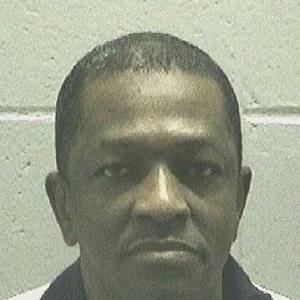
Saying “our nation’s long experiment with the death penalty has failed,” a coalition of nearly 100 criminal justice officials is calling on the federal government to halt the five executions currently scheduled for December 2020 and January 2021 and to end its use of the death penalty.
In a joint statement released on December 3, 2020, 95 current and former prosecutors, U.S. Attorneys, police chiefs, and sheriffs wrote that the U.S. death penalty process “is broken, implicates systemic racism and constitutional concerns, and distinguishes our country from many other democratic nations in the world.” The justice officials urged the government to grant clemency to the four men and one woman who the Trump administration seeks to execute during the transition period before Joe Biden is inaugurated as President on January 20, 2021.
“This President can set an example by showing mercy and converting the pending death sentences into sentences of life in prison without the opportunity for parole,” the statement says. “Granting clemency will not only help restore public trust in the legal system, but will also show the public that compassion is never the wrong choice.”
Signatories to the statement include 60 current elected prosecutors, including many from formerly high-use death penalty jurisdictions, such as Philadelphia, Dallas, and St. Louis. “Many have tried for over forty years to make America’s death penalty system just,” they wrote. “Yet the reality is that our nation’s use of this sanction cannot be repaired, and it should be ended.”
The joint statement was spearheaded by the organization, Fair and Just Prosecution, which describes itself as “a national network of elected prosecutors working towards common-sense, compassionate criminal justice reforms.” Miriam Krinsky, the organization’s executive director, criticized the death penalty as “a cruel, ineffective, unjust punishment. It is ripe with racial bias, is often used against the most vulnerable among us, leaves us no chance to correct wrongful convictions, and does nothing to improve public safety,” she said. “Rushing to execute people in the midst of a presidential transition and at a time when COVID-19 is surging would seriously undermine the public’s already-damaged trust in the justice system, and thus erode public safety.”
The statement’s signers argue that inequitable application of the death penalty hurts public safety. “Public safety is inextricably tied to the community’s trust in the fairness and moral authority of our justice system,” it says. Jim Bueerman, former Chief of Police of Redlands, California and former President of the National Police Foundation, said that the arbitrary and “often racially-biased … use of capital punishment undermines efforts to protect communities by further eroding the fragile bonds of trust between law enforcement and the people we serve.” When that trust is undermined, the statement ways, “[o]ur jobs get harder, as do the jobs of others who seek to keep our communities safe.”
The statement takes direct aim at the myth that capital punishment is reserved for “the worst of the worst” cases. “We also now know that we have not executed the worst of the worst, but often instead put to death the unluckiest of the unlucky – the impoverished, the poorly represented, and the most broken. Time and again,” it states, “we have executed individuals with long histories of debilitating mental illness, childhoods marred by unspeakable physical and mental abuse, and intellectual disabilities that have prevented them from leading independent adult lives.”
The five prisoners scheduled to be executed before the end of the Trump administration reflect that reality, the justice officials say. Brandon Bernard was just 18 when he was an accomplice in the crime for which he was sentenced to death. Alfred Bourgeois and Corey Johnson both have IQ scores in the clinically accepted range for intellectual disability. Lisa Montgomery was the victim of extraordinary physical and sexual abuse and is seriously mentally ill. Dustin Higgs did not kill anyone but was sentenced to death while his more culpable co-defendant received a life sentence.
The statement also questions the propriety of carrying out executions in the midst of a pandemic. “At a time when the country is struggling through a deadly pandemic, spending scarce resources to carry out federal executions and forcing defense lawyers to risk their lives to defend clients on death row is simply unthinkable,” it says.
Sources
Julia Card, Denver DA joins group calling for end to federal death penalty as execution dates of 5 inmates approach, Colorado Politics, December 4, 2020; Press Release, Over 95 Criminal Justice Leaders Call for an Immediate End to the Federal Death Penalty, Fair and Just Prosecution, December 3, 2020; JOINT STATEMENT BY CRIMINAL JUSTICE AND LAW ENFORCEMENT LEADERS IN OPPOSITION TO APPLICATION OF THE FEDERAL DEATH PENALTY, December 2020.
Federal Death Penalty
Mar 27, 2024




